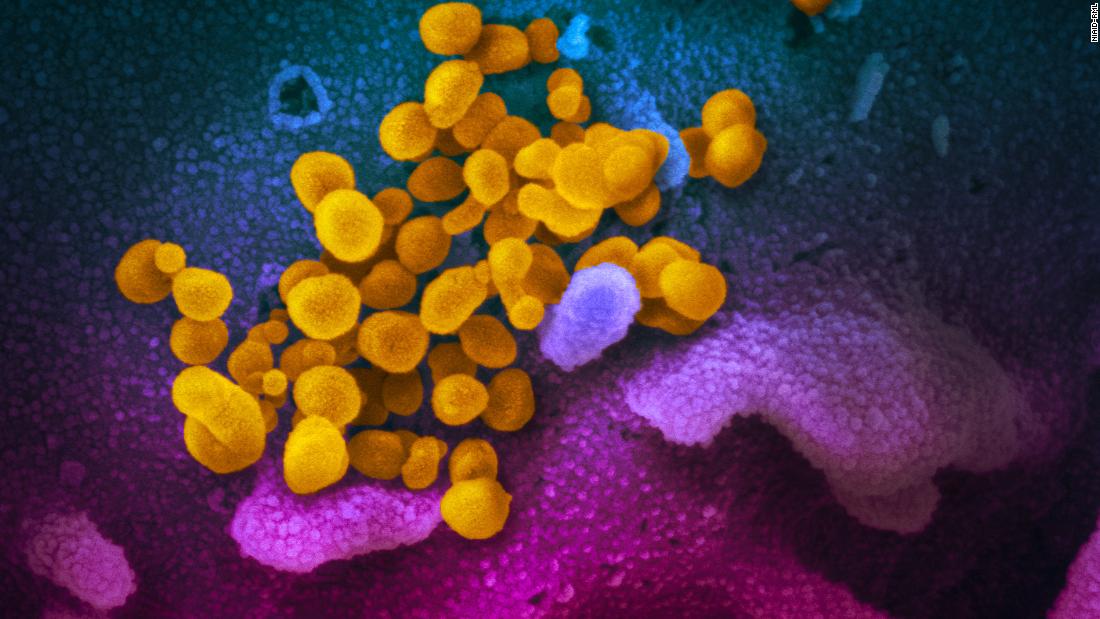(CNN Spanish) -
The World Health Organization (WHO) declared that the outbreak of the new coronavirus was a pandemic on March 11.
The disease has led to the closure of borders, the confinement of the population, has infected almost 28 million people and killed more than 906,000 around the world, according to figures from Johns Hopkins University.
Six months later, scientists know much more about the virus and the disease it causes, and dozens of studies around the world are underway to find a vaccine.
Also, some treatments have been approved to reduce mortality.
There is no cure or vaccine yet, and the social and economic effects are vast and devastating as governments struggle to open up economies and travel without causing new outbreaks.
Physical distancing, hand washing, and the use of masks remain the main tools against the virus.
These are six facts that we have learned in these months about covid-19.
Coronavirus Symptoms May Last Much Longer Than Initially Thought, Experts Say
Months after the pandemic that has infected more than 6 million Americans, both the public and experts are learning that the impacts of Covid-19 may last longer than expected.
The Centers for Disease Control and Prevention (CDC) warns that most Americans who have tested positive for the coronavirus can return to work or school 10 days after the onset of symptoms, at unless the illness requires hospitalization.
But new research suggests that the virus and its symptoms are often not close to ending at that benchmark.
According to research published in the British Medical Journal, patients may need to wait more than a month before being tested again to see if they have cleared the virus.
Keep reading
A vaccine trial was stopped because a volunteer had side effects
Pharmaceutical AstraZeneca, which works in conjunction with researchers from the University of Oxford in the United Kingdom, announced on Tuesday that it has suspended global phase 3 trials of its coronavirus vaccine after a patient had no side effects. specified.
Dr. Elmer Huerta analyzes the case and explains the meaning of a decision of this magnitude.
Keep reading
Experts like Dr. Anthony Fauci say that pausing the studies of a new drug is part of the safety protocol.
34 coronavirus vaccine clinical trials are currently underway.
Fauci talks about the AstraZeneca 1:59 trials
Possible treatments, vaccines and findings on the coronavirus
The coronavirus pandemic has put much of the world in lockdown, unleashed a health and economic crisis, and now countries are worrying about outbreaks following reopening orders.
There is still no vaccine, which is the closest thing to a definitive solution, but there are already advances and promising treatments to mitigate the symptoms of covid-19.
Keep reading
An app lets you monitor the disease
One of the factors that may concern citizens is whether or not they have symptoms of coronavirus.
King's College London and Harvard University presented the Covid Symptom Study app, in which users can report their health status and symptoms on a daily basis.
In the case of a positive coronavirus test, they can also report their evolution in the application.
Dr. Elmer Huerta gives us details of its operation.
Keep reading
Remote education is costing parents a fortune
Across the United States, many public schools opted for distance learning throughout the school week for some, due to social distancing protocols.
In the face of unreliable guidance from government and school officials, parents have had to choose from a jumble of makeshift and expensive educational options for their children.
Keep reading
The pandemic causes an increase in education expenses 1:16
Trump admitted to hiding the real threat of the coronavirus
US President Donald Trump admitted that he knew weeks before the country's first confirmed coronavirus death that the virus was dangerous, that it was airborne, that it was highly contagious, that it was "more deadly than even a very bad flu "and that repeatedly downplayed it publicly, according to journalist Bob Woodward in his new book" Rage. "
Keep reading
Trump admits he downplayed covid-19 5:25
With information from Dr. Elmer Huerta, Madeline Holcombe, Jeanne Sahadi, Jamie Gangel, Jeremy Herb and Elizabeth Stuart

